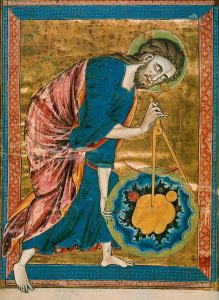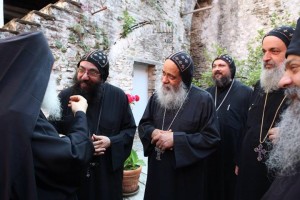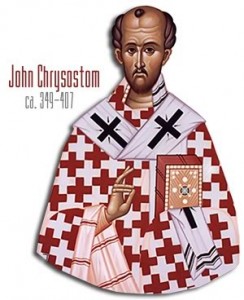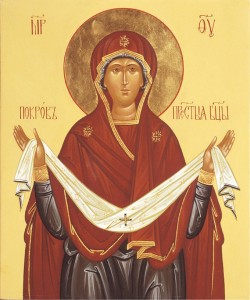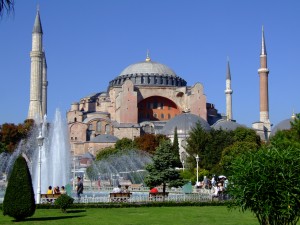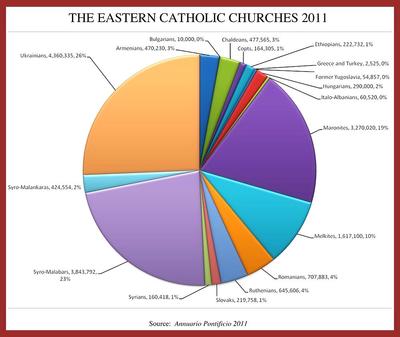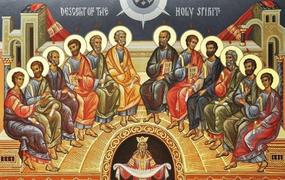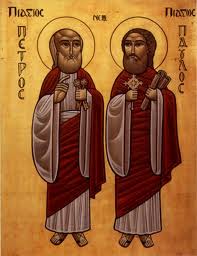
Recently on the Sunday of All Saints (26 May 2013) –the Byzantine Church observes a different feast of All Saints than do the Latin Christians– the Eparch (the Greek word for bishop) of the Melkites in the in the USA, Bishop Nicholas James Samra wrote to his people about preparing for the feast of Saints Peter and Paul on June 29. Yes, some Catholics do make preparations for other feasts!
One of the reasons I am drawing our attention to this matter is two-fold: 1.) being Catholic is more than merely following the Latin Church’s disciple — we can learn from others; and 2.) the discipline of those who belong to Christ is more than merely praying, fasting, and almsgiving for selfish reasons, that is, these spiritual activities are to break open our spiritual capacities. Remember what John Paul taught: Christians breathe with two lungs.
The liturgical feast of Ss. Peter and Paul is traditionally preceded by a period of concerted prayer and fasting. These saints –indeed, all of the apostles– are the pillars of our Church. In times past the period of fasting was significant while today it is much modified. The controlling idea is that before an important feast of the Lord, the Mother of God and some saints, the faithful are encouraged to prepare themselves to receive God’s graces in a worthy manner. We prepare by getting rid of sin and living virtuously: corporal and spiritual works of mercy are good things to do.
Bishop Nicholas recalls for us that the Monday after Sunday of All Saints the Byzantine Church begins a time of prayer and fasting leading us to the Feast of the Holy Apostles Peter and Paul on 29 June. But now the preparation is modified to 10 days by the Melkite Synod of Bishops. Fittingly, the bishop notes: “We are given this “Apostles Fast” in order to fan into flame the grace of the Holy Spirit within us and to reflect upon the hardships endured by the Apostles as they preached Divine grace and truth to the world.”
Faith needs to be connected with reality. This is the context in which God acts. Several things in our own lives can and ought to be connected with life. Bishop Nicholas indicates that one good way to extrovert our faith by having some sense human ecology on the spiritual level is remember those suffering the effects of the war in Syria. Certainly, we pray for all but special attention to be paid to the Catholics and Orthodox peoples.
Hence, the proposal is to begin our spiritual discipline on June 19. I recommend that you make a confession of sin and receive Holy Communion, pray for the Pope’s intention for June, and name the intentions. Select a charitable organization to to make a donation of funds.
Perhaps we can also use the Apostles’ Fast to pray for those living with cancer. I am thinking of my friend Jesuit Father Edward Oakes who is in need of a miracle due to his recent diagnosis of Type 4 pancreatic and liver cancer.
Saints Peter and Paul, pray for us.
